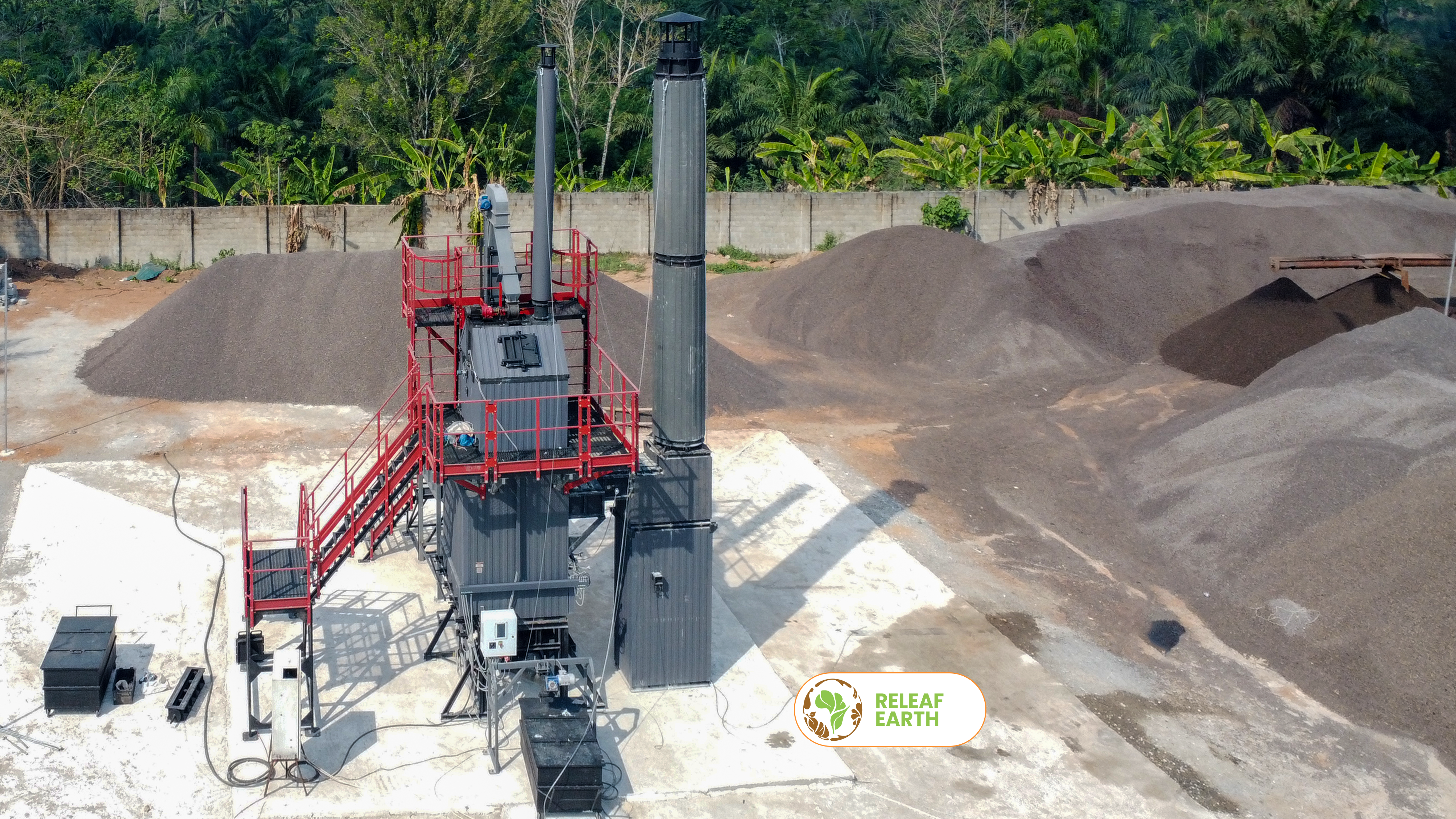In a landmark achievement for climate technology and sustainable agriculture, Releaf Earth, a Nigerian climate and agri-tech company, has unveiled the country’s first industrial biochar carbon removal facility in Iwuru, Cross River State. The pioneering site is projected to remove 40 kilotonnes of CO₂e by 2030, with expansion plans targeting an additional 60 kilotonnes through similar facilities.
The facility converts agricultural waste, specifically palm kernel shells, into premium biochar, a charcoal-like substance that stores carbon in a stable form for thousands of years. This approach combines permanent carbon removal with regenerative agriculture, delivering climate benefits while boosting soil fertility and improving the livelihoods of smallholder farmers.
Releaf Earth’s transition from food processing to industrial biochar production builds on its proprietary “Kraken” nut-cracking technology, which has processed over 10,000 metric tonnes of palm nuts. The resulting palm kernel shells form a perfect feedstock for biochar production through pyrolysis — a thermal decomposition process that prevents greenhouse gas emissions by stabilising carbon.
Biochar also acts as a soil enhancer. When applied to farmland, it improves water retention, nutrient availability, and crop yields. Releaf’s pilot project in Cross River State in 2024 demonstrated a 23% increase in agricultural yields, showing clear potential for improving food systems and climate resilience in rural communities.
Beyond environmental impact, Releaf Earth’s biochar solution generates economic value. Farmers can benefit from reduced fertiliser costs, higher productivity, and access to carbon credit revenues. The credits certified via the Riverse Registry are traceable and verified, ensuring environmental integrity and market credibility.
“Africa has natural advantages to lead carbon removal globally,” Releaf Earth CEO and co-founder Ikenna Nzewi said.
“We’re proving commercial viability first and then enabling other processors to do the same. Biochar can make African agriculture more resilient while driving measurable climate impact.”
The biochar units are designed to operate with minimal external energy. Powered by the renewable energy generated in the pyrolysis process itself and requiring only modest solar input, these systems are ideal for off-grid rural deployment. This makes Releaf’s model cost-efficient, scalable, and tailored to African realities.
Africa’s agricultural sector generates over a billion tonnes of biomass annually — an untapped resource with enormous potential for carbon sequestration and economic development. With a growing population and rising food demands, biochar provides a sustainable pathway forward.
Releaf Earth’s innovation is part of a broader strategy to embed carbon removal into Africa’s agricultural infrastructure. By integrating biochar production with food processing, the company creates an efficient system for large-scale, verifiable climate solutions.
According to Tito Jankowski, CEO of AirMiners, “Africa has everything it takes to lead the world in biochar — from agricultural waste to year-round sun and millions of farmers ready to boost their soil and income. What Releaf Earth is doing is both visionary and practical.”
Backed by Y Combinator, Breakthrough Energy Ventures, AirMiners, and Angaza Capital, Releaf Earth is poised to expand its model, working with certification bodies, government agencies, and agricultural cooperatives to scale impact.
Get passive updates on African tech & startups
View and choose the stories to interact with on our WhatsApp Channel
Explore




